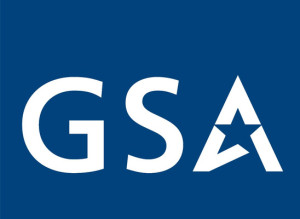
GSA nominee wants competition at the task order level
Emily Murphy, the nominee to be the next administrator of the General Services Administration, received broad support from both sides of the aisle.
Emily Murphy, the nominee to be the next administrator of the General Services Administration, sailed through her hearing Wednesday, facing few tough questions about her plans to improve federal acquisition, and promising to address long-standing issues in the Public Building Service.
However, Murphy, a former staff member for the House Small Business and Armed Services committees, did offer some further insight into where she believes federal procurement needs to go in the short term.
“Competition and reducing waste, and increasing transparency were two of the four things I’m really hoping to work on at GSA,” Murphy told the Senate Homeland Security and Governmental Affairs Committee. “Within the Federal Acquisition Service, which does over $50 billion in contracts on behalf of other agencies each year, I’d like to work to make sure the ceiling prices that are being set for agencies are just the beginning. When we set a price on our GSA schedule contract it’s more or less like the rack rate on the back of a hotel room door, the most you will ever pay. We are trying to make sure GSA’s contracting officers and our policies support really vigorous competition at the task order level because that is the amount we actually are going to spend so we want to get the best deal there, the most competition we can there.”

She said that also means GSA has to make it easier for new companies to do business with the government so the competition remains stiff.
The concept that the real competition happens at the task order level has been gaining supporters over the last few years, especially as large multiple award contracts have been hung up in protests.
GSA tested out this concept with its OASIS professional services governmentwide acquisition contract (GWAC), and has used similar approaches with its Human Capital and Training Solutions (HCaTS) multiple award contract and the Alliant 2 IT services solicitation. Additionally, Congress weighed in through the Defense authorization bill in 2016 and 2017, supporting the concepts of removing price as an evaluation factor on certain commercial buys.
The fact that Murphy voluntarily brought up the topic is a signal that is where she will focus.
Murphy outlined four broad priority areas:
- Provide ethical leadership. She said she would create a culture at GSA that puts the taxpayers first, encourages a diversity of opinions, values the contributions from all employees and promotes a safe culture for reporting misconduct.
- Reduce duplication. Murphy said there are opportunities to improve GSA’s internal systems and processes, including the risks of managing outdated technology. She also said GSA should facilitate the adoption of shared services across the government.
- Increase competition at the contract and task order level.
- Improve transparency. Murphy said this could mean providing a real property database, making data more available through Data.gov or improving the System for Award management. “Transparency will not only expose flaws and instill confidence in the integrity of our federal government, but also increase competition and ultimately save taxpayer’s money,” she said.
Murphy received broad praise from both sides of the aisle, opening the glide path to confirmation.
“Ms. Murphy’s breadth of experience in government contracting and procurement has enabled her to consider and to understand procurement policy from the perspective of GSA, its sister agencies, its vendor communities as well as its oversight bodies,” said Sen. Claire McCaskill (D-Mo.), ranking member of the committee, during her introduction of Murphy. “She has the complete working understanding that managing federal procurement policy is no small task, and is focused on reforming the acquisition process to increase both competition and confidence. She wants GSA to be a leader in assisting federal agencies as they update their IT and cyber infrastructure. I can’t imagine someone who could be more qualified for this position.”
Latest Facilities News
Most of the committee’s questions focused on how Murphy would address the real property challenges across government, including implementing the Federal Asset Sale and Transfer Act. GSA named a new PBS Commissioner, Dan Matthews, in August. Matthews will work closely with Murphy on several initiatives.
Sen. Tom Carper (D-Del.) asked Murphy if she will continue the work of the last two administrations to get rid of under-utilized or unused federal properties.
“Federal real property reform is the one GAO high risk list item for GSA. So it is a priority to addressing it, making sure we look at opportunities to do a better job with our leases,” Murphy said. “We have 100 million square feet in leases at GSA that will be expiring in the next five years, so it’s an incredible opportunity to get better deals, to look at longer term leases. The average federal agency tenancy in a GSA lease is about 24 years. Our average lease is six years, so we are leaving money on the table.”
Additionally, Murphy said she would work with the real property board on expediting the disposal of under-utilized or unused real property. The key, she said, is having the data. And to that end, Murphy said since January she has been monitoring the collection of data in the real property database.
“It will list out all those properties and their utilization rates,” she said. “For the first time, I think, by December we will have the information from other agencies in there as well. So when we have the board in place and the new expedited disposal authorities, we will be able to give them some real data to go in and crunch and analyze and GSA is ready to implement the disposal as soon as we get the sign off from the board.”
GSA disposed of over around 37 unused or under-utilized properties last year.
Murphy also would like to explore the public and private partnership for real property to get better deals on “build-to-suit” leases.
“It’s my understanding we have spent $750 million on the Department of Transportation lease over the last 15 years. At the time the lease was negotiated, we had the opportunity to have a $1 purchase option. But we went back and said, ‘No, we need to have a fair market purchase option.’ So we will pay for that building more than once. I’d really like to work with this committee to address issues along those lines,” she said.
Murphy also said GSA recently implemented a new construction manager at-risk process to reduce the cost overruns in construction contracts as another tool to better manage leased properties.
Copyright © 2025 Federal News Network. All rights reserved. This website is not intended for users located within the European Economic Area.
Jason Miller is executive editor of Federal News Network and directs news coverage on the people, policy and programs of the federal government.
Follow @jmillerWFED
Related Stories

Mega-contracts from GSA, DHS continue to spin on the protest hamster wheel

Public Buildings Service commissioner promises to listen, learn, lead GSA toward real property opportunities




